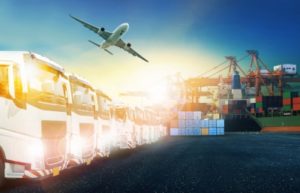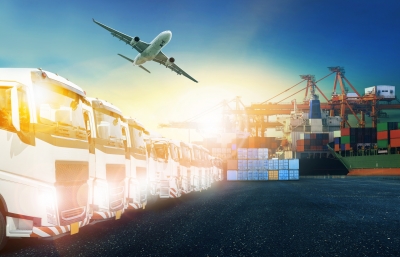
The new normal will bring the same challenges to the logistics industry, according to the Supply Chain Management Association of the Philippines (SCMAP).
“All the logistics challenges we are experiencing pre-COVID are still here… even if it’s the new normal already…” SCMAP president Christine Pardiñas said during a recent presentation at the first SCAn Network Hubs E-Forum.
These challenges include manpower shortage, supply issues (late or non-delivery by suppliers), and warehouses operating at almost full capacity due to businesses not being able to fully operate, all of which have resulted in high logistics costs, said Pardiñas.
Add to this traffic that has returned since quarantine restrictions have somewhat been eased.
Cabinet Secretary and Inter-agency Task Force for the Management of Emerging Infectious Diseases (IATF) co-chairperson Karlo Alexei Nograles during the same e-forum said “COVID-19 forced us to acknowledge some of the challenges in the transportation sector.”
He said these challenges include lack of coordinated and integrated transport networks, overlapping and conflicting functions among transportation agencies, transport safety and security concerns, and inadequacy of transport facilities particularly in conflict-affected and underdeveloped areas.
At the onset of the fight against COVID-19, the IATF policy of ensuring unhampered movement of cargo did “not necessarily translate 100% on the ground”, he said. (There were numerous reports of checkpoint personnel not letting through cargo trucks despite the government policy.)
“I think that’s the reason why better collaboration with the private sector has to happen so that government can immediately act on disruptions on the ground and it is reported to us immediately so that we can act,” Nograles said.
“COVID-19 accelerated and pushed the need for policy reforms that can be done administratively under the executive branch or even through legislation by Congress.”
Nograles said the National Transport Policy (NTP), the policy that embodies the government’s intended reforms in the transport sector, needs “to realign itself with transportation priorities and strategies post-COVID-19).” He did not elaborate how this can be done.
NTP was adopted by the National Economic and Development Authority (NEDA) Board in 2017 and its implementing rules and regulations were issued in December 2019.
READ: PH releases national transport policy IRR
The NTP, according to NEDA, was formulated to help achieve government’s vision of a “safe, secure, reliable, efficient, integrated, intermodal, affordable, cost-effective, environmentally sustainable, and people-oriented national transport system that ensures improved quality of life of the people.”
Apart from the NTP, NEDA’s Regional Development Group recently launched tools for troubleshooting problems in the supply chain for goods and production inputs and in planning supply chain-related interventions during and even post the COVID-19 pandemic.
READ: NEDA launches supply chain tools
The Supply Chain Analytics (SCAn) Dashboard and SCAn Reporter, which were approved on April 15 by the IATF, were created with the help of private sector such as SCMAP and the University of the Philippines Public Administration Research and Extension Services Foundation-Regulatory Reform Support Program for National Development. – Roumina Pablo





